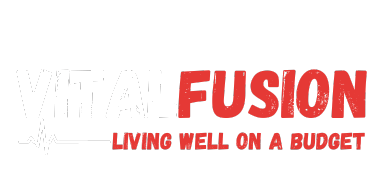As we grow older, what we eat plays a big role in how we feel and stay healthy. Nutrition is key to aging well and enjoying life to the fullest. Here are five important nutrition tips that can help you maintain your health as you age.
Key Takeaways
- Include leafy greens like spinach and kale for vitamins and minerals.
- Choose whole grains such as brown rice and oats for better energy and digestion.
- Eat lean proteins like chicken and fish to help your muscles stay strong.
- Incorporate healthy fats from sources like avocados and nuts for heart health.
- Add antioxidant-rich foods like berries and dark chocolate to fight aging signs.
Table of Contents
1. Leafy Greens
Leafy greens are packed with nutrients that are essential for healthy aging. Eating a variety of these vegetables can help keep your body strong and your mind sharp.
Benefits of Leafy Greens
- Rich in Vitamins: They provide vitamins A, C, and K, which are important for your immune system and bone health.
- High in Fiber: This helps with digestion and can keep you feeling full longer.
- Low in Calories: You can eat a lot without worrying about gaining weight.
Popular Leafy Greens
Here are some common leafy greens you should consider adding to your diet:
- Spinach
- Kale
- Swiss Chard
- Collard Greens
- Romaine Lettuce
How to Include Leafy Greens in Your Diet
- Salads: Toss them into salads for a fresh crunch.
- Smoothies: Blend them into smoothies for a nutrient boost.
- Stir-fr fry: Cook them quickly in a stir-fry for a tasty side dish.
Leafy greens are not just good for your body; they can also improve your mood and energy levels. Make them a regular part of your meals!
2. Whole Grains
Whole grains are an important part of a healthy diet, especially as we age. They provide essential nutrients and can help maintain good health. Eating whole grains can improve your overall well-being.
Benefits of Whole Grains
- Heart Health: Whole grains can lower the risk of heart disease.
- Digestive Health: They are high in fiber, which helps with digestion.
- Weight Management: Whole grains can help you feel full longer, which can aid in maintaining a healthy weight.
Top Whole Grains to Include
Here are some of the best whole grains to add to your meals:
- Quinoa: This grain is packed with protein and is great for seniors.
- Brown Rice: A simple and versatile option.
- Oats: Perfect for breakfast and full of nutrients.
| Whole Grain | Key Nutrients | Health Benefits |
|---|---|---|
| Quinoa | High in protein | Supports muscle health |
| Brown Rice | Fiber and vitamins | Aids digestion |
| Oats | Antioxidants | Lowers cholesterol |
Whole grains are not just food; they are a key part of a healthy lifestyle. Incorporating them into your diet can lead to better health as you age.
By choosing whole grains, you can enjoy delicious meals while also taking care of your health. Remember, 5 healthy whole grains seniors should be eating include quinoa, brown rice, and oats!
3. Lean Proteins

Lean proteins are essential for maintaining muscle mass as we age. Experts suggest that older adults looking to keep their muscles should consume approximately 50 per cent more protein. This means aiming for about 1.2 grams of protein per kilogram of body weight each day.
Benefits of Lean Proteins
- Muscle Maintenance: Helps in preserving muscle strength.
- Weight Management: Keeps you feeling full longer, which can help with weight control.
- Bone Health: Supports bone density and overall health.
Sources of Lean Proteins
Here are some great options to include in your diet:
- Chicken breast
- Fish (like salmon and tuna)
- Legumes (beans and lentils)
- Tofu and tempeh
- Low-fat dairy products
Including lean proteins in your meals can significantly impact your health as you age. They provide the necessary nutrients to keep your body strong and active.
Recommended Daily Intake
| Age Group | Protein Intake (g/kg/d) |
|---|---|
| 65+ | 1.2 |
| 50-64 | 1.0 |
| 18-49 | 0.8 |
4. Healthy Fats

Healthy fats are important for our bodies as we age. They help keep our hearts healthy and can improve brain function. Including the right types of fats in your diet can make a big difference in your overall health.
Types of Healthy Fats
- Monounsaturated fats: Found in olive oil, avocados, and nuts.
- Polyunsaturated fats: Found in fish, flaxseeds, and walnuts.
- Omega-3 fatty acids: Important for brain health, found in fatty fish like salmon and sardines.
Benefits of Healthy Fats
- Heart Health: They can lower bad cholesterol levels.
- Brain Function: They support memory and cognitive skills.
- Nutrient Absorption: They help your body absorb vitamins A, D, E, and K.
Eating healthy fats can help you feel full and satisfied, making it easier to maintain a balanced diet.
5. Antioxidant-Rich Foods
Antioxidant-rich foods are essential for maintaining health as we age. These foods play a crucial role in healthy aging by fighting off harmful substances called free radicals. Here are some key points to consider:
- Berries: Blueberries, strawberries, and raspberries are packed with antioxidants.
- Nuts: Walnuts and almonds are great sources of healthy fats and antioxidants.
- Dark Chocolate: A small amount can provide a boost of antioxidants.
Benefits of Antioxidants
| Food Type | Antioxidant Level | Health Benefits |
|---|---|---|
| Berries | High | Supports brain health |
| Nuts | Moderate | Reduces heart disease risk |
| Dark Chocolate | High | Improves mood and heart health |
Including a variety of antioxidant-rich foods in your diet can help you feel better and stay healthier as you age. They not only protect your cells but also enhance your overall well-being.
In summary, focusing on these foods can significantly contribute to a healthier aging process. Make sure to add them to your meals!
Conclusion
Aging is a natural part of life, and what we eat can make a big difference in how we feel as we get older. By following these five simple nutrition tips, you can help your body stay strong and healthy. Remember to eat a variety of foods, stay hydrated, and choose healthy fats. Also, don’t forget to enjoy your meals and share them with others. Making these small changes can lead to a happier and healthier life as you age.
Frequently Asked Questions
Why are leafy greens important for aging well?
Leafy greens are packed with vitamins and minerals that help keep our bodies strong. They can help protect our hearts and improve our memory as we get older.
What are some examples of whole grains?
Whole grains include foods like brown rice, whole wheat bread, and oatmeal. These foods give us energy and help our digestion.
How do lean proteins benefit older adults?
Lean proteins, like chicken, fish, and beans, are great for building muscles and keeping our bodies healthy. They also help us feel full longer.
What are healthy fats and why do we need them?
Healthy fats come from foods like avocados, nuts, and olive oil. They are good for our hearts and can help our brains work better.
What foods are high in antioxidants?
Foods like berries, dark chocolate, and nuts are high in antioxidants. These help protect our bodies from damage and can keep us feeling young.
How can I include more of these foods in my diet?
You can start by adding a salad with leafy greens to your meals, choosing whole grain bread, and snacking on nuts or berries instead of chips.






